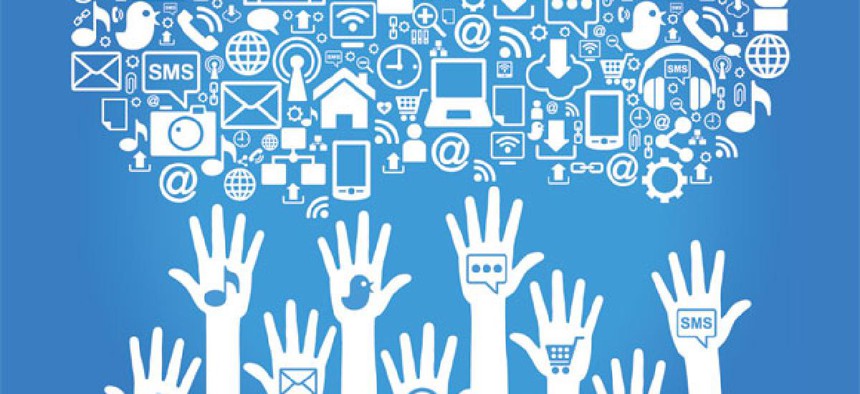Biggest federal crowdsourcing challenges aren’t technical

VLADGRIN/Shutterstock.com
Organizational, political and legal difficulties hamper efforts, panelists say.
The greatest challenges that federal agencies face when trying to draw crowdsourced information from citizens on social media aren’t technical; they’re organizational, political and legal, an analyst at the U.S. Agency for International Development’s GeoCenter said Thursday.
Shadrock Roberts’ team worked extensively with USAID attorneys before launching a crowdsourcing project that relied on volunteer labor to map where the agency’s Development Credit Authority had backed loans, he said at a social media in emergency management event sponsored by the Wilson Center think tank’s Science and Technology Innovation Program.
Tim Brice, a senior meteorologist at the National Weather Service, has faced similar challenges.
“Government rules and regulations are either slowing us down or stifling innovation,” he said. “I don’t know how many times I’ve tried to roll out a new idea only to be told ‘that’s against the law, we can’t do that, you can’t put that on a government computer.’ It gets very frustrating.”
NWS began to solicit Twitter storm reports from the public in 2010 under the #wxreport hashtag and broadcasts weather information on other social media.
The toughest question for the U.S. Forest Service is what function crowdsourcing should fulfill.
On one hand, citizen reports of wildfires, unlike storms, tend to be inaccurate, said Kris Eriksen, a public information officer with the Forest Service’s National Incident Management Organization.
As a result, Eriksen said she is wary of engaging too much with the crowd because its members might come to expect a Forest Service response to concerns that are not top agency priorities.
“If we create a forum for people to tell us they feel threatened or endangered then do we have an obligation to respond?” she asked. “We don’t do wild land fires that way. We don’t put an engine in every driveway. We have a larger, 30,000-foot view of where we need to respond.”
On the other hand, she said, there’s a psychological benefit to having a social community during a crisis and drawing citizens into that community is a good way to broadcast useful information and combat rumors.
“People want and need something to do in a crisis,” she said. “They need to feel they’re participating.”
(Image via VLADGRIN/Shutterstock.com)






